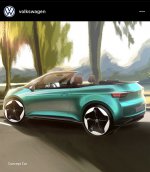Sorry for mixed quotes. However your recollection on your friends pool heater is wrong. A good modern air source heatpump has about 300% "efficency" The pumping requirement is about 50% i.e to pump 2kW of heat it uses 1kW of electricity. Most of the electrical input is converted to heat so when heating this is useful and adds to the output giving 3kW heatoutput. These are rough figures and depend on equipment ambient temperature, temperature differential etc. At absolute best you might get 3x pumping so 400% nothing like the 500-600% for the pool oor 1000% claimed by Andy.
I have heat pumps in the current house and had them in my previous apartment.
Robert G8RPI.
As usual puffing out your chest and trying to prove everyone wrong with your endless and pointless posturing,
As you’ve already pointed out you can get 3kw of heat from 1 kw of electricity with modern ground source heat pumps..
Step back to 1970s1980s and 1990. Thinking about 3 bar heaters and night storage heaters, you might need a 3kW heater in every room to maintain even a modicum of heat in the house in winter these old things used huge amount of power and where massively inefficient.
You love to sit with your calculator trying to prove beyond a shadow of a doubt that you’re 100% superior to everyone else but time and time again miss the fact that these are an example of how our electricity use has massively reduced in the past few decades. It wasn’t meant to say every household now uses an exact amount of electricity less now that would charge an electric car and it was a comment on future improvement in energy use would reduce those figures more still.
Put your calculator down quit googling energy use of ground source heat pump energy use and try and have a conversation with people rather having to turn it into an opportunity puff your chest out and best everyone else.
20 years ago in a flat with no heating I had 3x1200watt heaters that I had to move around l, they produced more light that heat and barely warmed anything unless you where sat right in front of it so event then not enough to actually heat the house and it was a very small flat. You could turn each 400w bar on or off depending how much heat you wanted that was the entirety of the control, there where maybe 6-7 100w incandescent bulbs in the house. The fridge and freezer were build in the late 80s/early 90s with all the energy efficiency that comes with things of that era. The TV was a massive room dominating CRT again using 100-200 watts maybe more fore what is now a tiny 28inch screen. Also the PC used a big CRT. Needed speakers that you plugged into the mains (without a brick transformer)
But you’re telling me there is no way a house would use less these days than say a minimum 3-7Kw power needed to charge a car for a few hrs at home…..
In terms of arguing about the environmental cost or the monetary cost of keeping a home of course gas heating does count but we are talking about electricity use and therefore gas heated homes use considerably less power than a home with electric heaters in every room or a ground source heat pump.
If you have to turn everything into an argument, and you have to prove you’re the big man with all the answers, try using your brain rather than a calculator.
Another main problem with those critical of electric cars is the maths they use and ignoring big chunks of information to suit their narrative



